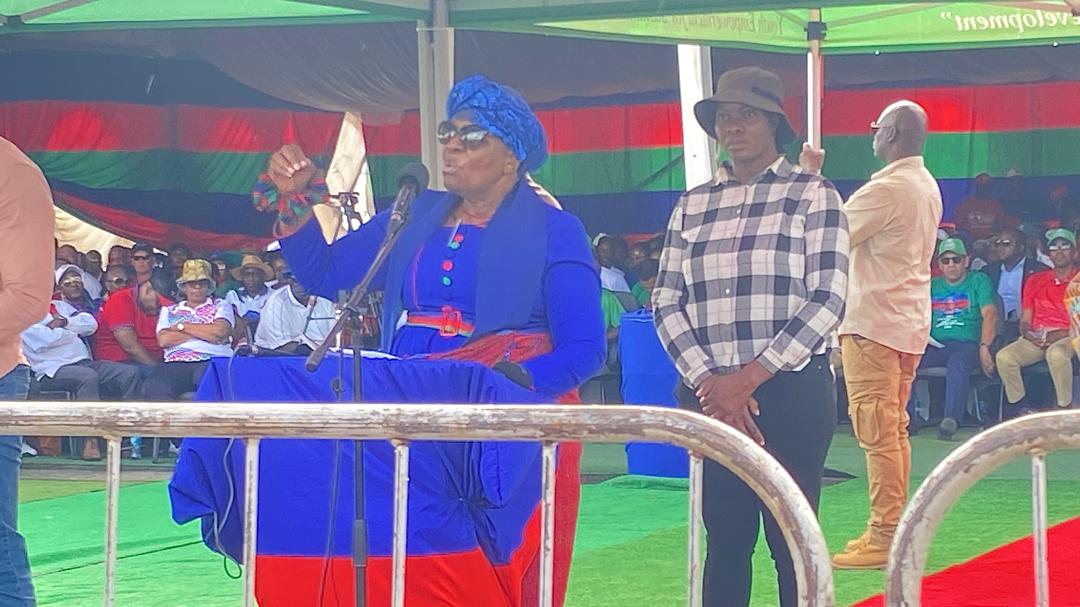If it were not for former finance minister and Reserve Bank governor Tito Mboweni’s embrace of inflation targeting as a monetary policy tool, South Africa’s economy would be in a far more perilous state than it is now.
Tito Mboweni, a former governor of the Reserve Bank and finance minister, who died at 65 on 12 October, lived a life of extraordinary influence and span.
He was large, and he lived large.
Mboweni travelled a long road in politics and economics, starting as a radical who would not have been out of place in the modern Economic Freedom Fighters, but ending in the centre of political and economic orthodoxy.
He was an unusual figure in African National Congress (ANC) politics – both enormously loyal, yet with a streak of independence that set him apart from many of his more tractable comrades.
His loyalty extended beyond his political home to his actual home in Tzaneen, Limpopo where he returned after his stint as finance minister to his farm.
From there, he famously posted images of his gargantuan ‘man of the people’ stews that defied the laws of high cuisine.
Mboweni had a large following on social media when he used to share images of his garlic-heavy chicken or pilchard stews.
His popularity in the party, despite his increasing critique of its economic position, rested on his sharp intelligence, a practical sense, a glint in his eye and quick laugh.
But he was a stickler for form and could be prickly in his relationship with the press.
Mboweni was the youngest of three children born in modest circumstances, but smart enough to be admitted to the University of the North in 1979.
He didn’t finish his bachelor’s of commerce degree, but left South Africa (SA) in his second year of studies to go into exile in Lesotho, where he joined the ANC.
He later studied development economics at the University of East Anglia in England.
In her book, ‘Anatomy of a Miracle’, Patti Waldmeir records that in 1990, Mboweni’s views on economics as deputy head of the department of economic policy, were heartfelt, but almost irrationally left-wing.
When he returned from exile to South Africa in July 1990, Waldmeir writes that he told her of “[…] his grand plans to dismantle the six giant conglomerates which dominate the South African market”.
When she asked him who would buy the assets, he suggested the state would do so.
Pressed about where the funding would come from, he replied that he would raise the cash.
As to the impact on business confidence and growth, she says “[…] he implied that sacrifices would be made. He despised and resented the white businessmen who invested money on the Johannesburg Stock Exchange rather than in building houses for the poor.”
CHANGING VIEWS
But by as early as 1992, his views had changed somewhat.
Then ANC leader Nelson Mandela famously said, after he was released from prison, that nationalisation of SA’s main business was “the policy of the ANC” and any modification was “inconceivable”.
Yet, when Mboweni travelled to Davos, Switzerland, for the World Economic Forum with Mandela in 1992, between the two of them, they decided to omit sections of a speech endorsing nationalisation provided by the ANC’s head office.
As it happens, the ANC’s nationalisation agenda would also be tossed into the bin.
Mandela and Mboweni were influenced at the time by their discussions at the forum, particularly with Vietnamese and Chinese delegations, who both told them they were in the process of going precisely in the opposite direction and were privatising state enterprises.
Both men led a revision in ANC economic policy, which focused on the need for social justice and the creation of a black business class.
LABOUR REFORMS
Mboweni missed out on becoming the country’s first black finance minister to his sometimes friend, sometimes rival Trevor Manuel.
But as labour minister, he energetically set about reforming labour legislation in ways he would later come to regret.
Major revisions were made to the Labour Relations Act, Basic Conditions of Employment Act and Mines Health Safety Act.
But trade unions today still honour his contribution to labour relations with South African Federation of Trade Unions general secretary, Zwelinzima Vavi, saying yesterday that Moboweni “will always have a special place in the hearts of the millions of South African workers”.
By the time Mboweni was appointed finance minister in 2018, he shocked some in the ANC by insisting that public servants’ salaries should be held constant and that the bailout of state-owned enterprises should stop.
In June 2020, he proposed to cut the state’s wage bill of R160.2 billion over three years and to adopt a zero-based budget in an effort to avoid a sovereign debt crisis.
Clearly, his long stint at the Reserve Bank had impressed on him the importance of fiscal probity and the dangers of inflation.
‘GOVERNOR NUMBER 8’
Mboweni spent a decade at the bank, starting in 1999, and they were clearly the years in which he felt most in his element. Even as finance minister he would refer to himself as “governor number eight”.
During his tenure from August 1999 to November 2009, the rand fell from about R6/dollar to around R7.20/dollar.
It had a couple of collapses in between to more than R12/dollar in late 2001 in the wake of the terror attacks in New York and Washington and the United States-led invasion of Afghanistan.
But if you compare that with its performance over the past 15 years, Mboweni’s devotion to inflation targets and prudent monetary policy clearly helped to anchor the rand.
He also had to contend with the fallout from the global financial crisis.
In the 15 years since Mboweni stepped down as governor, the CPI has fallen within the range ten times on annual averages.
So, Mboweni’s overall record as governor was very solid.
Following his departure from the bank, he entered a period of greater involvement in business, becoming an international adviser to Goldman Sachs International and serving as chairman of AngloGold Ashanti, and Discovery, among other company directorships.
Colin Coleman, the chief executive of Goldman Sachs South Africa at the time of the appointment, said Mboweni was “just a giant”.
“There wasn’t a populist bone in his body, even though he was popular,” he said.
But, Mboweni’s legacy will live on, particularly through Operation Vulindlela, the joint initiative of the presidency and National Treasury to accelerate the implementation of structural reforms and support economic recovery through modernising network industries, including electricity, water, transport and digital communications.
In the ANC and outside of it, he will be sorely missed.
– Daily Maverick
Stay informed with The Namibian – your source for credible journalism. Get in-depth reporting and opinions for
only N$85 a month. Invest in journalism, invest in democracy –
Subscribe Now!






